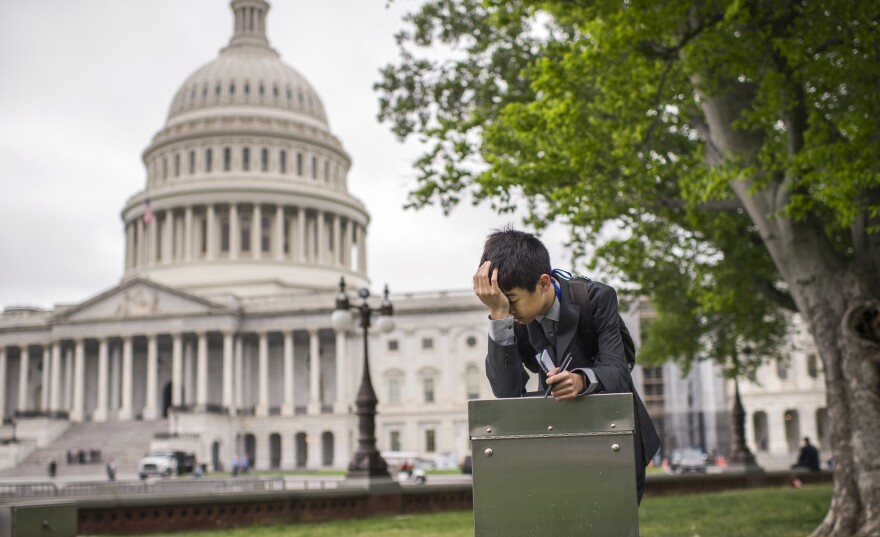Updated at 12:30 p.m. ET
The Republican chairmen of the House and Senate Appropriations committees have endorsed the idea of a short-term spending bill to keep the government open while budget negotiations continue.
The stop-gap spending measure, introduced by House Appropriations Chairman Rodney Frelinghuysen of New Jersey, would put off the deadline to May 5.
"I am optimistic that a final funding package will be completed soon," Frelinghuysen said. "It is time that this essential work is completed so that critical programs and activities — including national defense — are properly and adequately funded for the year."
Republican Senate Appropriations Committee Chairman Thad Cochran of Mississippi said, "We've made substantial progress on an agreement to complete the 2017 appropriations process. Let's pass this new continuing resolution, and make good use of this extra time to enact overdue legislation to provide for national defense and meet our country's needs."
Democrats in the House are sending up warning flares, telling Republicans that if they use a one-week extension to make time for a vote on their health care bill, then Democrats will not vote to avoid a shutdown. Typically, members of the House minority have little say, but given that members of the House Freedom Caucus often oppose any spending measure, Democrats may be needed to pass a funding bill.
"Our position had been, if we're ready, we'll give it another week to implement," House Democratic leader Nancy Pelosi said to reporters on Thursday. "But if it's just more time, kicking the can down the road to have these same back-and-forths and unknowns injected into the debate, we're not there."
On the prospect of a revived health care vote, Pelosi added, "They're mixing apples and oranges here."
House Speaker Paul Ryan said, "The reason we need an extension in the first place is because Democrats have been dragging their feet. Even if we get an agreement, let's just say, in 10 minutes, we simply can't process the paperwork that long. And we have a three-day rule — people need to be able to read the bill. So, it inevitably — under any scenario or circumstance — requires a short-term extension, and I'm confident we'll be able to pass a short-term extension."
A final spending bill or an extension has to pass both chambers by midnight on Friday night to avoid a government shutdown. Earlier this week, the president tweeted some last-minute demands, including border wall funding and cutting off subsidies for the Affordable Care Act. Progress came after Trump dropped those threats.
In reality, border funding and Obamacare subsidies would be big fights on their own — let alone jammed into a spending bill to keep the lights on in the government — because Congress has been unable to pass a budget.
The Trump White House floated trying to swap, dollar-for-dollar, border funding for Obamacare subsidies. That was a nonstarter with Democrats, especially given what little leverage in public opinion they see for Republicans. Both the GOP health care proposal and the border wall have been unpopular.
There are also complications within the GOP. Plenty of border-area Republicans are against a wall, and moderates are in favor of administering Obamacare in a good-faith way.
But it appears the White House decided to try to avoid blame for a government shutdown on Trump's 100th day in office.
Copyright 2023 NPR. To see more, visit https://www.npr.org.




